Are you looking to craft the perfect letter template for an adjunct faculty contract offer? We understand how crucial it is to communicate effectively and professionally with prospective faculty members. This template will help you ensure that all important details are covered while maintaining a welcoming tone. Join us as we explore the essential elements of an adjunct faculty contract offer letter in the full article!

Position Title and Department
The adjunct faculty contract offer outlines essential details for the position in academia. For instance, the Position Title refers specifically to the role, such as "Adjunct Professor of History" or "Adjunct Instructor of Mathematics," while the Department indicates the academic unit, like "Department of Social Sciences" or "Department of Natural Sciences." These aspects are crucial as they define the contractual relationship and expectations between the institution and the adjunct faculty member. Additional information may include the teaching load, stipend or salary details, and specific course assignments, which ensure clarity in responsibilities and compensation for the faculty member.
Contract Duration and Start Date
The adjunct faculty contract offer specifies a contract duration of one academic semester, typically spanning approximately four to five months, commencing on August 15, aligning with the start of the fall semester at many universities. The contract explicitly outlines responsibilities, which may include teaching one or more courses within the designated department, engaging in student assessments, preparing instructional materials, and attending faculty meetings. Additional conditions related to office hours, communication methods, and grading policies are typically stipulated alongside the start date, facilitating a clear understanding of the expectations for both the institution and the faculty member.
Compensation and Payment Schedule
The compensation structure for adjunct faculty positions typically includes a per-course payment system. For instance, institutions may offer a rate of $3,000 to $5,000 for a three-credit course, depending on the faculty member's qualifications and years of experience. Payment schedules can vary; many colleges use a bi-weekly or monthly system, ensuring consistent income throughout the semester. In addition, specific dates for payment disbursements are often outlined in institutional contracts, with the first payment usually occurring shortly after the course begins. Benefits such as professional development funds or access to university facilities may also be included. Each institution may have policies regarding adjunct faculty that can affect overall compensation and payment schedules.
Duties and Responsibilities
Adjunct faculty members at universities often engage in various aspects of academic responsibilities, such as teaching undergraduate or graduate courses within their area of expertise, typically contributing to the academic community for a semester or academic year. Duties involve preparing course materials, including syllabi and assessments, delivering lectures, managing classroom environments, and providing timely feedback on assignments. Additional responsibilities may include holding office hours to assist students, participating in faculty meetings to ensure curriculum alignment, and collaborating with full-time faculty to enhance educational programs. Furthermore, maintaining accurate records of student performance and adhering to institutional policies and guidelines are crucial for sustaining academic integrity and supporting the institution's mission.
Conditions of Employment (e.g., confidentiality, code of conduct)
Adjunct faculty members must adhere to specific conditions of employment that emphasize professionalism and integrity within academic institutions. Confidentiality agreements protect sensitive information related to student records (as stipulated by the Family Educational Rights and Privacy Act - FERPA) and institutional data. A code of conduct outlines expected behaviors, including respect for diversity and inclusion, ethical interactions with students and faculty, and adherence to institutional policies regarding grading and assessment. Faculty members are also required to complete training on Title IX compliance and anti-harassment policies. Violations of these standards may lead to disciplinary actions, impacting contract renewal and employment status within the educational institution.

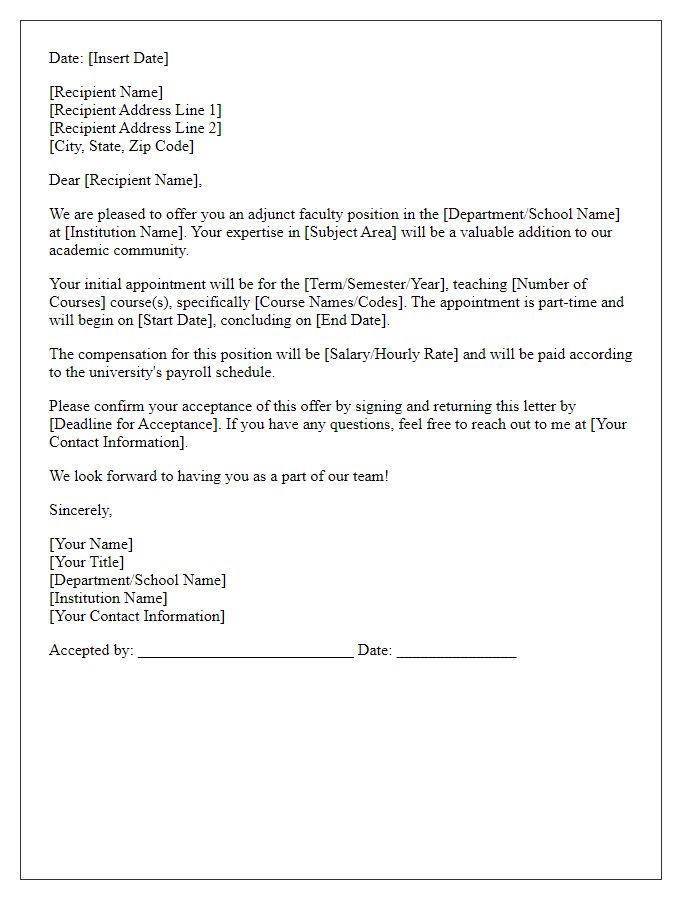
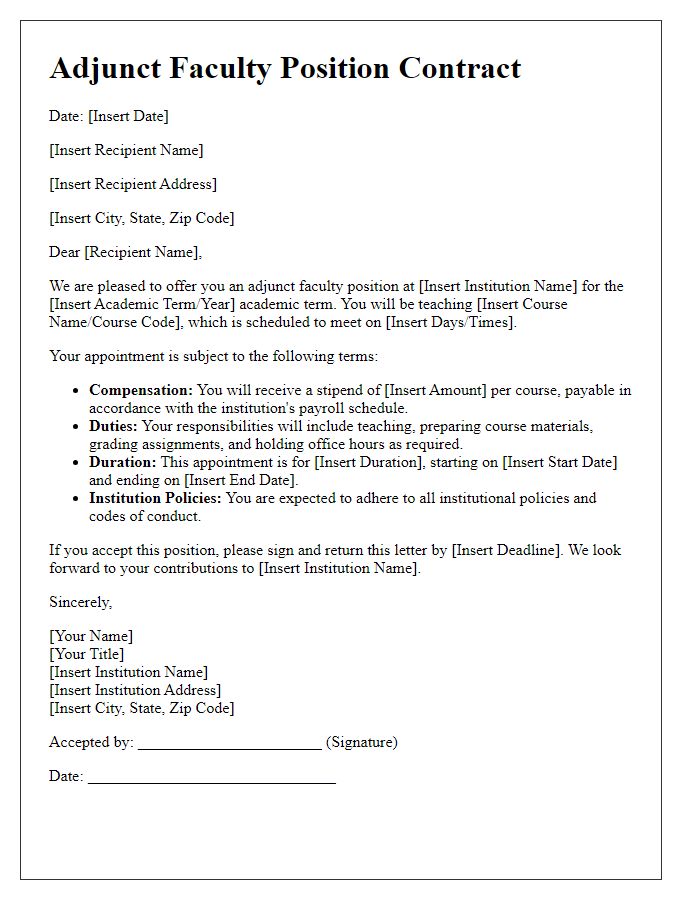
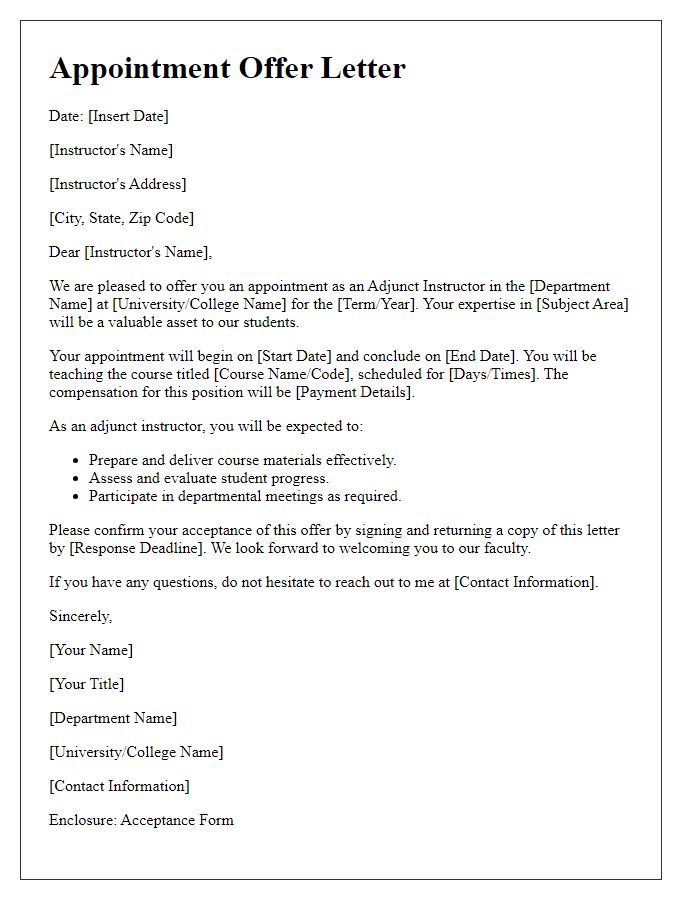

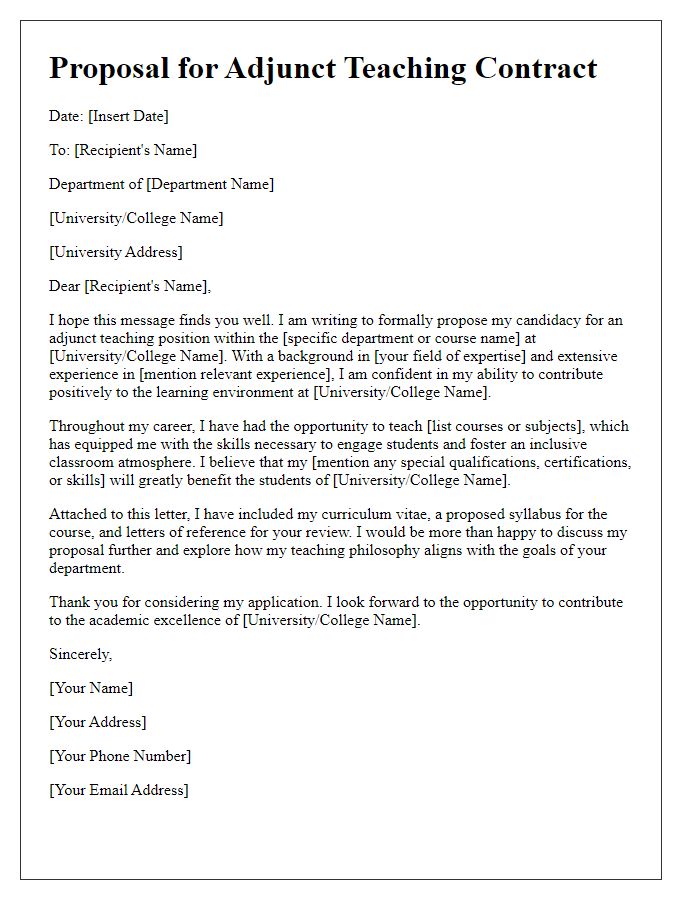

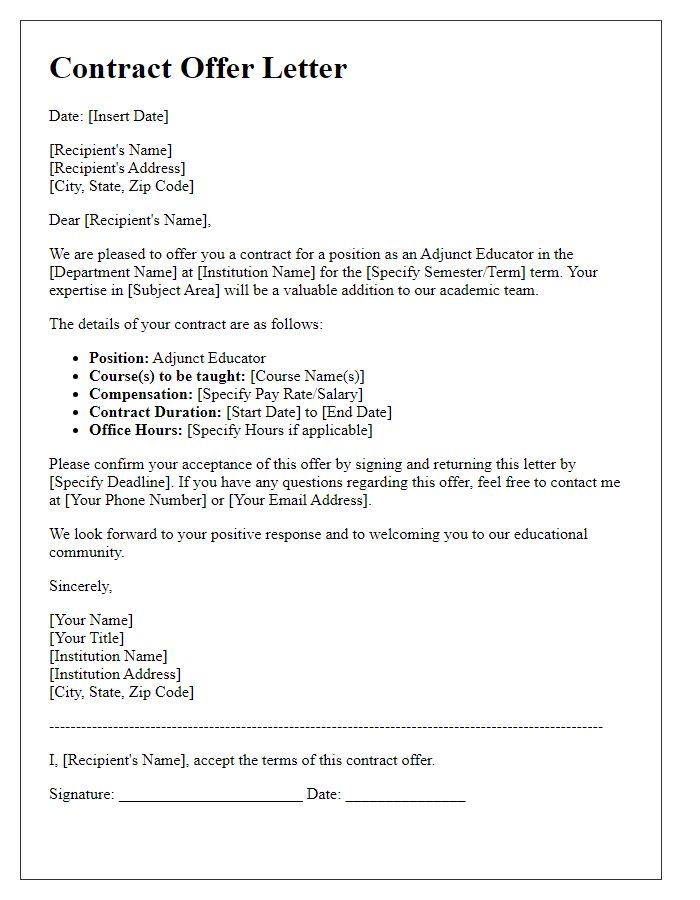
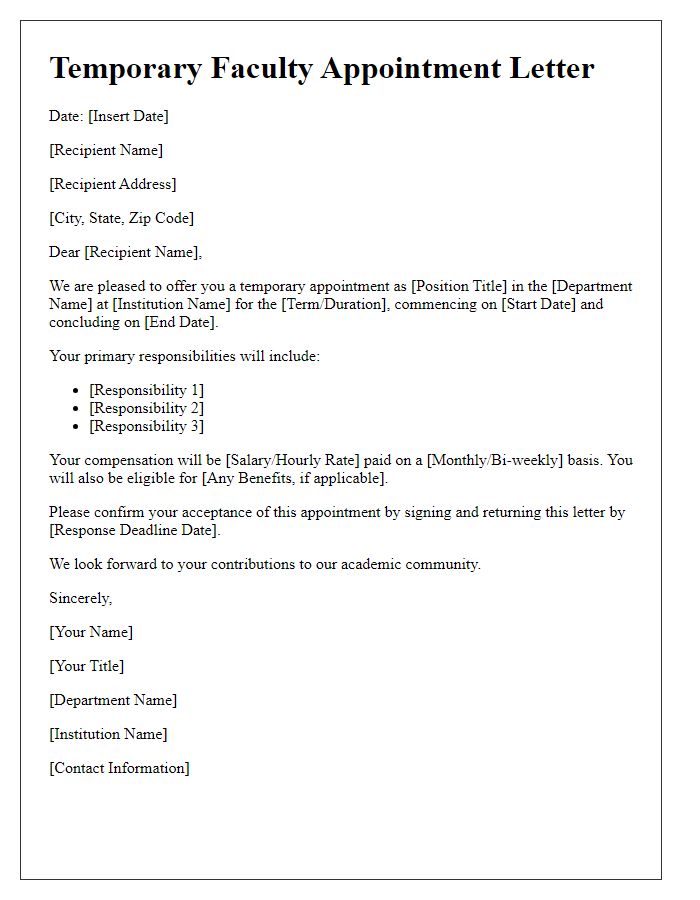
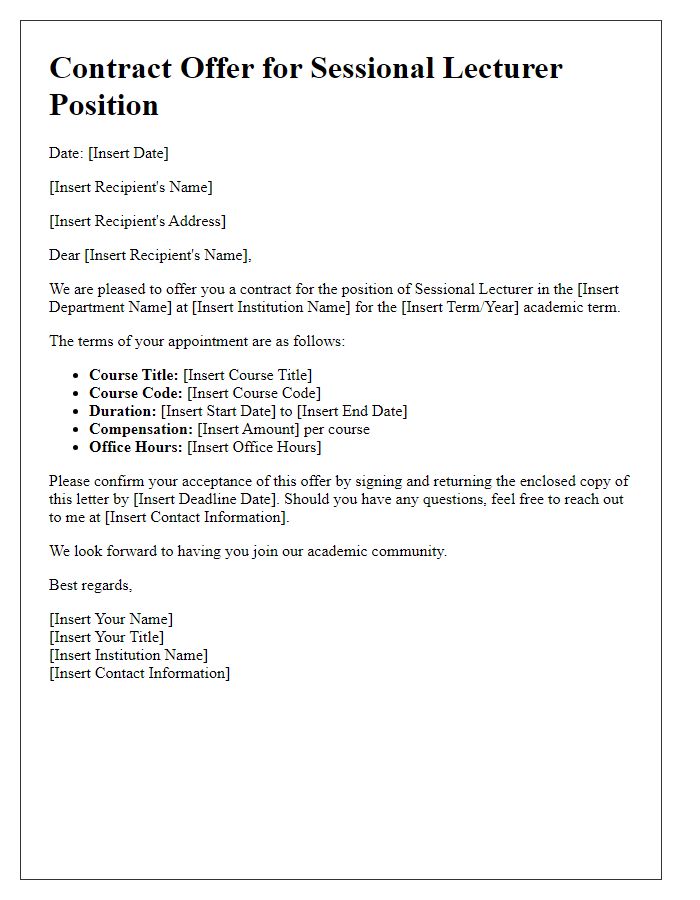
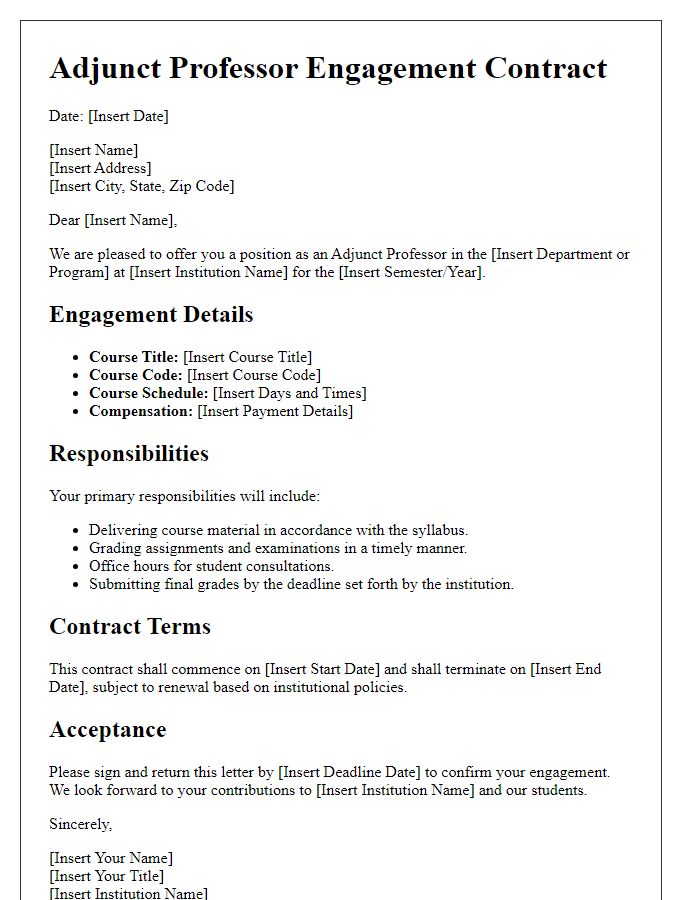


Comments